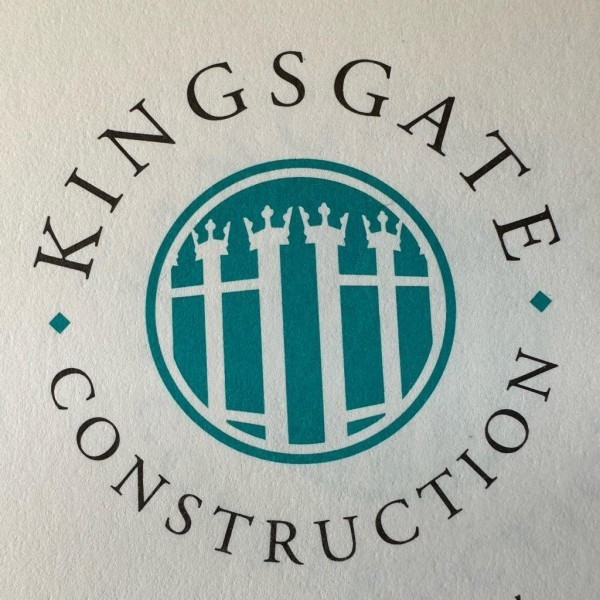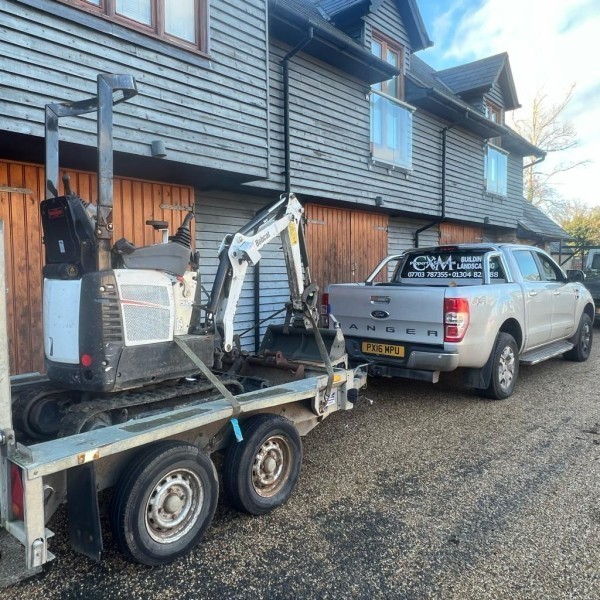Garage Conversions in Chatham
Search Garage Conversions in places nearby
- Garage Conversions in Ashford
- Garage Conversions in Broadstairs
- Garage Conversions in Canterbury
- Garage Conversions in Deal
- Garage Conversions in Dover
- Garage Conversions in Faversham
- Garage Conversions in Folkestone
- Garage Conversions in Gillingham
- Garage Conversions in Gravesend
- Garage Conversions in Herne Bay
- Garage Conversions in Hythe
- Garage Conversions in Lydd
- Garage Conversions in Maidstone
- Garage Conversions in Margate
- Garage Conversions in New Romney
- Garage Conversions in Northfleet
- Garage Conversions in Ramsgate
- Garage Conversions in Rochester
- Garage Conversions in Royal Tunbridge Wells
- Garage Conversions in Sandwich
Understanding Garage Conversions in Chatham
Garage conversions in Chatham have become increasingly popular as homeowners seek to maximise their living space without the hassle of moving. Whether you're looking to create a home office, an extra bedroom, or a playroom, converting your garage can be a cost-effective solution. This article will guide you through the process, benefits, and considerations of garage conversions in Chatham.
The Benefits of Garage Conversions
Garage conversions offer numerous advantages. Firstly, they increase the usable space within your home, allowing for more flexibility in how you use your living areas. Secondly, they can significantly boost the value of your property, making it a smart investment. Additionally, converting a garage is often cheaper and less disruptive than building an extension.
Increased Living Space
One of the primary reasons homeowners opt for garage conversions is the need for additional living space. Whether it's a new bedroom for a growing family or a dedicated workspace, a converted garage can provide the extra room you need without encroaching on your garden or outdoor space.
Enhanced Property Value
Converting a garage can add considerable value to your home. According to property experts, a well-executed conversion can increase your property's value by up to 20%. This makes it an attractive option for those looking to sell in the future.
Cost-Effective Solution
Compared to other home improvement projects, garage conversions are relatively affordable. They typically require less structural work than extensions, which means lower costs and quicker completion times. This makes them an appealing choice for budget-conscious homeowners.
Planning and Regulations
Before embarking on a garage conversion in Chatham, it's essential to understand the planning and regulatory requirements. While some conversions may not require planning permission, others might, depending on the scope of the project and local regulations.
Planning Permission
In many cases, garage conversions fall under permitted development rights, meaning you won't need planning permission. However, if your property is listed or in a conservation area, you may need to seek approval. It's always wise to check with your local council to ensure compliance.
Building Regulations
Regardless of planning permission, all garage conversions must comply with building regulations. These rules ensure that the conversion is safe, energy-efficient, and suitable for habitation. Key areas covered by building regulations include structural integrity, fire safety, insulation, and ventilation.
Design Considerations
Designing your garage conversion is an exciting part of the process. It's an opportunity to create a space that meets your specific needs and complements the rest of your home. Considerations include layout, lighting, and access.
Layout and Functionality
Think about how you intend to use the space and plan the layout accordingly. For instance, if you're creating a home office, you'll need space for a desk, storage, and perhaps a seating area. If it's a bedroom, consider the placement of the bed, wardrobe, and other furniture.
Lighting and Ventilation
Garages often lack natural light, so it's crucial to incorporate adequate lighting into your design. Consider installing windows or skylights to bring in natural light. Additionally, ensure there's sufficient ventilation to maintain air quality and prevent dampness.
Access and Integration
Consider how the converted space will integrate with the rest of your home. Will you need to create a new entrance, or can you use an existing doorway? Ensure that the transition between spaces is seamless and that the conversion feels like a natural extension of your home.
Choosing the Right Professionals
While some homeowners may choose to undertake a garage conversion as a DIY project, hiring professionals can ensure a high-quality finish and compliance with regulations. Consider engaging architects, builders, and interior designers with experience in garage conversions.
Architects and Designers
An architect or designer can help you maximise the potential of your garage conversion. They can provide valuable insights into layout, materials, and aesthetics, ensuring that the final result meets your expectations and enhances your home's overall appeal.
Builders and Contractors
Choosing the right builder is crucial for a successful conversion. Look for contractors with experience in garage conversions and check references and reviews. A reputable builder will manage the project efficiently, ensuring that work is completed on time and within budget.
Cost Estimation and Budgeting
Understanding the costs involved in a garage conversion is essential for effective budgeting. Costs can vary widely depending on the size of the garage, the complexity of the design, and the materials used.
Factors Affecting Costs
Several factors can influence the cost of a garage conversion. These include the need for structural changes, the quality of materials, and the level of finish desired. Additionally, costs may increase if you require plumbing or electrical work.
Budgeting Tips
To keep costs under control, set a clear budget from the outset and stick to it. Obtain multiple quotes from builders and suppliers, and factor in a contingency fund for unexpected expenses. Prioritise essential elements and consider where you might be able to save money without compromising on quality.
Common Challenges and Solutions
While garage conversions can be straightforward, they may present certain challenges. Being aware of potential issues and their solutions can help ensure a smooth process.
Dealing with Dampness
Garages are often prone to dampness, which can be a significant challenge during conversion. To combat this, ensure proper insulation and ventilation, and consider installing a damp-proof membrane to protect against moisture ingress.
Addressing Structural Concerns
Some garages may require structural modifications to support the new use. This could involve reinforcing walls or floors. A structural engineer can assess your garage and recommend necessary changes to ensure safety and stability.
Environmental Considerations
As with any home improvement project, it's important to consider the environmental impact of your garage conversion. Opting for sustainable materials and energy-efficient solutions can reduce your carbon footprint and lower utility bills.
Insulation and Energy Efficiency
Proper insulation is crucial for maintaining a comfortable temperature in your converted space. Use eco-friendly insulation materials and consider installing energy-efficient windows and doors to minimise heat loss.
Sustainable Materials
Choose sustainable materials wherever possible. This might include reclaimed wood for flooring or recycled materials for insulation. Not only are these options better for the environment, but they can also add unique character to your conversion.
Case Studies: Successful Garage Conversions in Chatham
Exploring real-life examples of successful garage conversions can provide inspiration and insight into what can be achieved. Here are a few case studies from Chatham homeowners who have transformed their garages into functional and stylish spaces.
Home Office Transformation
One Chatham resident converted their single-car garage into a bright and airy home office. By installing large windows and using light colours, they created a productive workspace that feels open and inviting. The addition of built-in storage maximised the use of space and kept the area clutter-free.
Guest Suite Addition
Another homeowner transformed their double garage into a luxurious guest suite, complete with an en-suite bathroom. By using high-quality materials and finishes, they created a space that feels like a boutique hotel room, perfect for hosting visitors.
Frequently Asked Questions
- Do I need planning permission for a garage conversion in Chatham? In most cases, garage conversions fall under permitted development rights, but it's best to check with your local council.
- How long does a garage conversion take? The duration depends on the complexity of the project, but most conversions take between 4 to 8 weeks.
- Can I convert a detached garage? Yes, detached garages can be converted, though they may require additional considerations for access and utilities.
- What is the average cost of a garage conversion? Costs vary, but you can expect to pay between £5,000 and £20,000, depending on the scope of the project.
- Will a garage conversion add value to my home? Yes, a well-executed conversion can increase your property's value by up to 20%.
- Can I do a garage conversion myself? While possible, it's recommended to hire professionals to ensure compliance with building regulations and achieve a high-quality finish.
Garage conversions in Chatham offer a fantastic opportunity to enhance your home, providing additional space and increasing property value. By understanding the process, planning carefully, and choosing the right professionals, you can transform your garage into a functional and stylish part of your home.



























